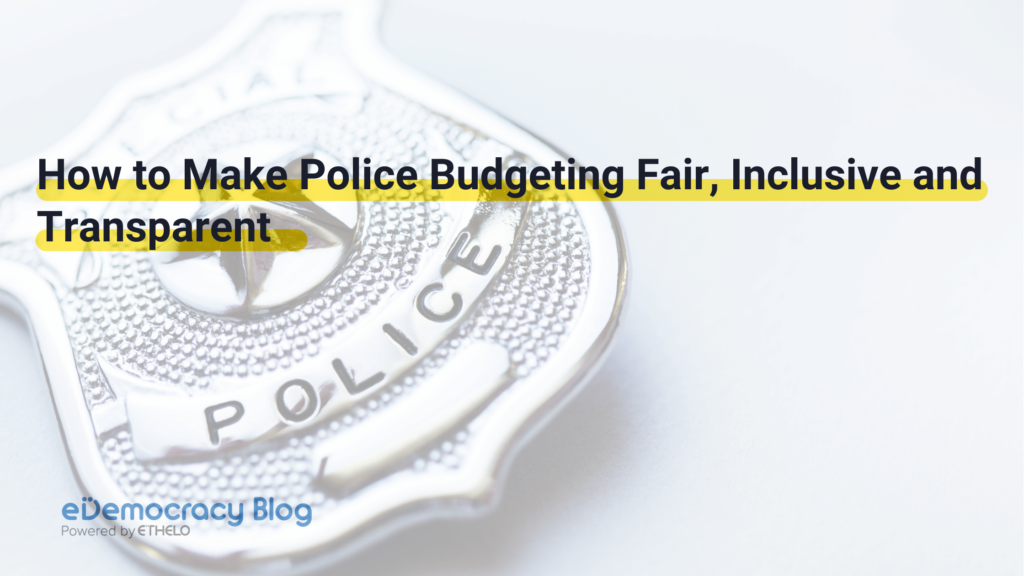How to Make Police Budgeting Fair, Inclusive and Transparent

Municipalities can also use the eDemocracy approach to budgeting to address other community issues and help with both short and long-term planning.
Many of the same polarization issues around policing also come into play around climate change—some people want large-scale reforms while others prefer to maintain the status quo. Municipalities can use the same online engagement tools to create a carbon budget and build consensus about how a city or town—and the people within it—can work together to meet carbon reduction goals.
The eDemocracy approach can also help municipalities make the most of resources that are being stretched increasingly thin due to COVID-19. Not only are in-person meetings a health risk in the current climate, but they also require valuable staff time and other resources to plan, promote, and execute.
Moving public engagement online lets staff spend their time helping residents who need urgent help and access to services. Data from budget consultations are readily available in an easy-to-use format whenever staff want to access it.
No matter how much money is on the table, people still have an important role in determining how it’s spent, which will lead to greater buy-in in the long term.
Moving to an online approach is a win-win from multiple angles. There’s never been a better time for governments to connect with their residents and establish new relationships. These relationships can thrive long after the pandemic ends and the work of police reform moves out of the streets and into the offices of cities and towns across Canada.
To see an example of how a community can use Ethelo to create a budget for police that creates space for other alternative approaches to safety and crime reduction, visit our Police Budgeting demo